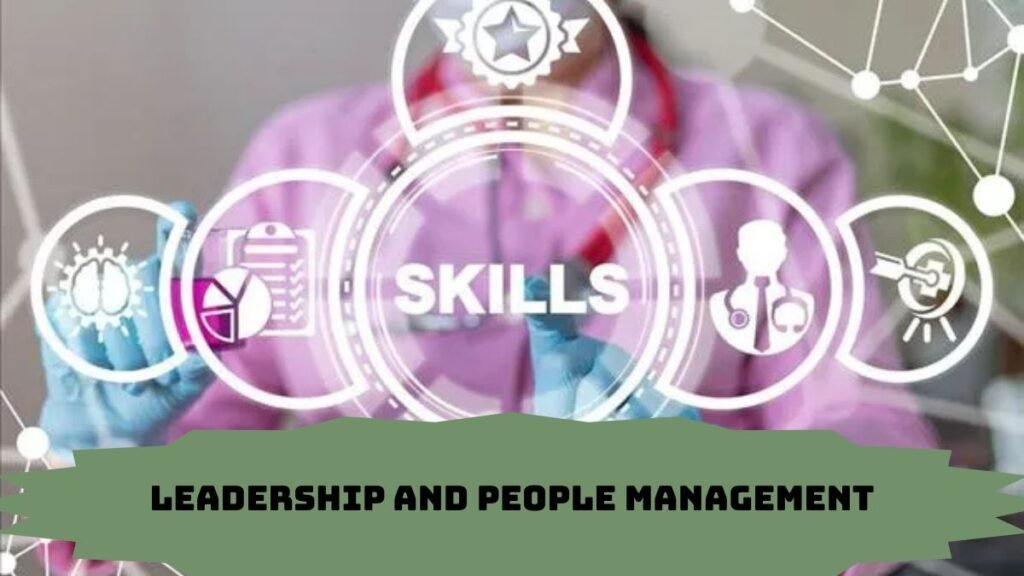In the contemporary dynamic pharma industry, technical and scientific knowledge is now not enough to thrive. The sector requires professionals with the ability to blend technical knowledge with relevant soft skills to navigate multi-ethnic teams, handle clients, speak persuasively, and flourish in ever-changing business landscapes. Soft skills, or people or interpersonal skills, are the intangible qualities that enable one to comfortably and positively interact with people.
Regardless of whether you are a researcher, sales representative, pharmacist, regulatory affairs executive, or clinical trial associate, it is essential to possess these soft skills to attain career success and growth in the pharma industry. This comprehensive guide discusses the best 9 key soft skills that you need to have to excel in the pharma industry, their importance, practical applications, and how to enhance them.
1. Communication Skills
Importance:
Clear, concise, and effective communication is a necessity in the pharmaceutical industry. It becomes necessary for experts to communicate with colleagues, healthcare professionals, regulators, customers, and patients.
Applications:
To communicate technical scientific information to stakeholders who are not technical
- To present research findings
- To prepare clear reports and documentation
- To handle patient counseling (in the case of pharmacists)
- To communicate regulatory requirements
How to Develop:
- Active listening in practice
- Enroll in public speaking and presentation skills
- Enhance writing skills through professional courses
Seek feedback on your communication style
2. Teamwork and Collaboration
Significance:
Most pharmaceutical projects involve cross-functional collaboration between R&D, quality assurance, marketing, regulatory, and sales teams. Smooth team work facilitates smooth project execution.
Applications:
- Cross-departmental projects
- Clinical trial coordination
- Product development teams
- Marketing and sales campaigns
How to Develop:
- Attend team-building workshops
- Engage in group projects or collaborative research
- Learn conflict management
- Be open to receiving feedback and compromising
3. Leadership and People Management

Significance:
Leadership is not specific to managers. In the pharma sector, anyone from the bottom up should have leadership qualities to lead projects, direct teams, and make decisions.
Applications:
- Directing project teams
- Mentoring junior colleagues
- Decision-making in ambiguity
- Promoting innovation and creativity
How to Develop:
- Participate in leadership development courses
- Voluntarily take leadership roles in projects
- Observe and learn from senior leaders
- Build empathy and emotional intelligence
4. Problem-Solving and Critical Thinking
Importance:
The pharma industry is regularly plagued by science, regulatory, and operations problems. Analytical thinking and problem-solving help professionals scan around situations, diagnose root causes, and implement practical solutions.
Applications:
- Troubleshooting manufacturing or formulation issues
- Troubleshooting clinical trial challenges
- Enabling regulatory compliance
- Resolving customer complaints
How to Develop:
- Take part in brainstorming activities
- Apply SWOT and root cause analysis techniques
- Resolve logical reasoning problems
5. Adaptability and Flexibility
Importance:
Pharma is a very dynamic industry with evolving rules, market trends, and technology. People need to learn to adapt to change and move quickly into new jobs, processes, and responsibility.
Uses:
- Living with regulatory changes
- Moving to new technologies (e.g., AI in drug discovery)
- Starting and growing companies with changing roles
- Living with crisis situations such as drug recalls or shortages
How to Build:
- Stay current with industry trends
- Be prepared to take on diverse roles and responsibilities
- Develop a positive attitude towards change
- Accept continuous learning
6. Prioritization and Time Management
Importance:
Pharma is all about tight deadlines and multiple projects, be prepared in R&D, production, or marketing. Proper time management guarantees on-time completion of tasks, quality, and regulatory compliance.
Applications:
- Meeting project milestones
- Meeting regulatory submission deadlines
- Running clinical trials
- Coordinating with various stakeholders
How to Develop:
- Use the application of tools like Gantt charts and Kanban boards
- Break large tasks into smaller segments
- Prioritize the use of the Eisenhower Matrix
- Develop effective delegation skills
7. Emotional Intelligence (EQ)

Importance:
EQ is all about being aware of and managing your own emotions and others’ emotions. In stressful pharma environments, EQ enhances relationships, teamwork, and conflict resolution.
Uses:
- Managing workplace conflicts without violence
- Building rapport with patients, clients, and colleagues
- Stress reduction and burnout prevention
- Developing teamwork and a positive work culture
How to Build It:
- Develop self-awareness and mindfulness
- Exercise empathy-building
- Seek 360-degree feedback
8. Negotiation and Persuasion Skills
Relevance:
Negotiation and persuasion are essential skills for sales, regulatory affairs, supply chain, and business development professionals. These skills help in attaining the best deals, resolving conflicts, and influencing decisions.
Applications:
- Negotiating with suppliers, customers, and regulators
- Persuading stakeholders within product approvals
- Handling salary or project negotiations within the company
- Persuading healthcare professionals to adopt new therapies
How to Develop:
- Take negotiation skill workshops
- Learn from negotiation case studies
Role-play common negotiation scenarios
Read books like “Getting to Yes” by Roger Fisher
9. Presentation and Public Speaking Skills
Importance:
Pharma professionals are frequently required to present research findings, product presentations, or clinical trial results. Effective public speaking gives confidence and ensures proper communication of facts.
Applications:
- Presenting in conferences and seminars
- Planning training programs
- Pitching products to healthcare experts or investors
- Internal presentations to management teams
How to obtain:
- Join public speaking clubs (e.g., Toastmasters)
- Use video and critique your presentations
- Practice storytelling abilities
- Use visual aids skillfully
Conclusion
In the highly competitive pharmaceutical industry, the driving forces for career growth and success are soft skills. It takes the acquisition of the top 9 must-have soft skills, in addition to technical knowledge, to prepare professionals for managerial roles, enhance employability, and foster self-enhancement.
Today’s employers look for professionals who are technically competent but also proficient in interpersonal, communication, and leadership skills. Therefore, consciously devoting time and energy to acquiring these soft skills will open new avenues of opportunities, both in India and globally.
Whether you are a student, early-career professional, or seasoned expert, it’s never too late to nurture these crucial skills and become a well-rounded pharma professional ready for the challenges of tomorrow.

Shreya Singh is a dedicated financial journalist known for her in-depth coverage of government programs and economic updates. She consistently delivers accurate information on U.S. topics such as Stimulus Checks, IRS announcements, and federal relief efforts. Shreya also reports on UK welfare programs, covering developments in Universal Credit, PIP, and DWP news. Her clarity and commitment to trustworthy reporting have earned her a loyal following among readers seeking insightful financial updates.
